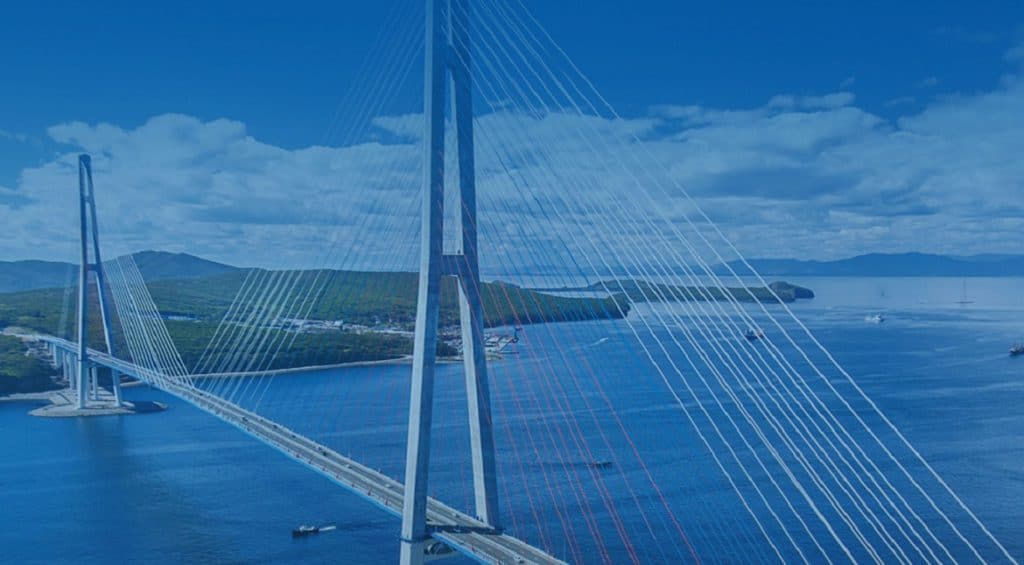By Anton Evstratov
Russia will host in Vladivostok the VII Eastern Economic Forum from September 5 to 7. Delegations from more than 40 countries have already confirmed their participation in the forum; however, the host country expects a broader representation of about 60 participating states.

Undoubtedly, the forthcoming forum is of great importance for Russia – amid the confrontation in Ukraine and economic sanction pressure from key Western countries, Moscow has already largely reoriented its economy to the East and expects to continue this reorientation. This largely depends on the results of the Eastern Forum and the positions of its participating countries.
At the same time, the crisis provoked by Western sanctions against Russia is global in nature and already has global consequences that affect the entire planet in one way or another. And while the states and societies of Ukraine’s most consistent allies and Russia’s adversaries may still be willing to tolerate the full range of social and economic consequences of their leaders, it is clear that most of the world does not need to do so.
Moreover, the logic of economic interaction between countries and regions under conditions of confrontation between the West and Russia is objectively changing, and negotiations on the panels of the Eastern Forum are important for building new ties, or embedding them into those that have already emerged. The Forum as a significant attempt to build new economic and, in the longer term, social and political realities is evidenced by its blocks, such as “World division of labor: abandoning the old and creating new ties”, “Everybody has his own way: logistics of the changed world”, “Patriotism to replace tolerance”, etc.
Already now the VII Eastern Economic Forum can become the most demanded business platform on expansion of cooperation in the Asia-Pacific region in the world, but the prospects for the event and participation of interested delegations can theoretically go far beyond the most daring expectations.
Of particular importance to the forum are the planned Russia-ASEAN, Russia-Vietnam and Russia-India business dialogues on its panels. The first of these dialogues testifies to the rapidly growing interest of the ASEAN countries – originally quite a pro-American association of Southeast Asian states – toward Moscow. Despite unprecedented pressure from both the United States and its allies, Japan and the European Union, Southeast Asia is not only ready to restore its economic cooperation with Moscow, but also to intensify it. This is largely due to the unsatisfactory living standards that the sub-region’s states have faced amid the Russian-Western confrontation.
The pro-Western course and U.S. loyalty unfortunately do not provide anything tangible for the Indonesian worker, the Malay businessman or the Thai peasant at the moment. At the same time, none of the Southeast Asian countries, or Asia as a whole, has their own defining problems with Russia. In this regard, the prospects for Russia’s business dialogues with ASEAN and Vietnam are indeed hard to overestimate.
The Russia-India dialogue is no less important. Both countries are key participants in the BRICS organization, the importance of which has increased significantly in the context of global confrontation since the beginning of 2022. June 23 at a summit of the organization, Russian President Vladimir Putin expressed the desire to redirect trade flows to “reliable international partners. These words have not disagreed with deeds – during the first third of 2022 between Russia and the BRICS countries recorded a 38% increase in trade.
It is not surprising that Iran and Argentina, some of the largest economies in their region, have already in recent months applied to join the organization. Moreover, other powerful players – Saudi Arabia, Turkey and Egypt – are already known to aspire to join the BRICS. Of particular importance in the context of the global confrontation between Russia and the West is the fact that the latter three countries are allies and major trade and economic partners of the United States.
However, consultations between Russian and Indian businessmen are also important on a bilateral basis – New Delhi is now the most important buyer of Russian oil, coal and military-industrial complex products.
At the same time, a number of other major international economic associations are also tied to Russia. First of all, we are talking about the EAEU, in which Moscow is the recognized leader. At the moment, the union is also experiencing a boom period – the previously agreed mechanisms of common markets begin to work, the strengthening of economic ties within the Eurasian space looks very promising, and the next step is to completely abandon the dollar and the euro as a universal currency in the calculations and to build an alternative economic pole to the EU.
Currently, the EAEU has free trade agreements with Vietnam, Singapore and Serbia, and is in talks with Iran on signing a comprehensive memorandum of understanding, despite the fact that trade between Iran and the Union only for the past year has grown by 73%. Even Azerbaijan, which has military and political problems with Russia’s ally and EEU member Armenia, shows great interest in integration with this structure – this explains the recent appearance of its Prime Minister Ali Asadov at a meeting of the EEU Intergovernmental Council in Cholpon-Ata, Kyrgyzstan.
It is impossible to bypass the Eastern Economic Forum and those wishing to force interaction with another major Eurasian economic and political organization, the SCO. Bringing together such key world players as Russia and China, who are rapidly raising the stakes in the game against the West, the SCO, along with the EAEC and BRICS, is a major alternative to the existing world order, not only in the economy, but also in politics and security. The development of this association is evidenced by the launched procedure for the inclusion of Iran, as well as the status of SCO partners and observers, which almost two dozen states have – from Saudi Arabia to Mongolia.
And that is not counting Russia’s key role in the CSTO military bloc, its bilateral alliance with Syria, the strengthening of political cooperation with India, China and Iran, the increasing influence in Africa and some South American states.
It is the multi-format organizations, currently tied to Russia, that gives it and its allies and partners space for maneuvering and adequate response to the United States and its satellites, which also have a number of alliances, blocks and unions with different goals, formats and logic of action on hand. In particular, in addition to the already well-known NATO and the EU, China cannot but be concerned about the AUKUS alliance from the UK, the US and Australia, aimed specifically against Beijing. India already has experience of interaction with Washington and its allies within the framework of the Quadrilateral Security Treaty (QUAD) and the Indo-Pacific Economic Framework, and in many ways this experience pushes New Delhi to strengthen interaction with structures loyal to and led by Russia.
The current situation in the world is such that it is in the interests of each country to choose its allies and partners objectively and honestly in the current confrontation. A large part of the globe, despite the forced propaganda and sometimes powerful political and economic pressure, has not joined the anti-Russian sanctions, thus opening up unprecedented prospects for cooperation with Russia. The goal of the latter, in turn, is much more global: to build an economic, political, and military pole alternative to the Western one, lost after the collapse of the USSR, which at the moment is impossible alone, or with a small number of partner countries.
In order to achieve its goal, Moscow is ready to show and is already showing maximum flexibility and understanding in its relations with each of its possible friends. In this regard, the September Eastern Economic Forum in Vladivostok is not just the largest event in the Asia-Pacific economy, but also probably an important milestone in the history being created right now.
Author: Anton Evstratov (Russian historian, publicist and journalist living in Armenia, lecturer at the Department of World History and Foreign Regional Studies at the Russian-Armenian University in Yerevan).
(The views expressed in this article belong only to the author and do not necessarily reflect the views of World Geostrategic Insights).







